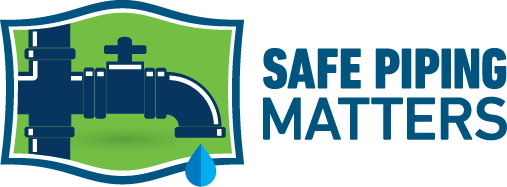Plumbing and Firefighting Associations Call for Plastic Piping Ban
The International Association of Fire Fighters (IAFF) and the United Association of Plumbers, Fitters, Welders and HVAC Service Techs (UA) recently called for a ban on plastic piping in hospitals, nursing facilities, high rise residential structures, and healthcare facilities. Using materials other than plastic will reduce the risk of exposure to toxic smoke, gases and dust to occupants, first responders, and demolition and construction professionals.
Plastics Release Carcinogens
“We know that when plastics burn, they emit carcinogens and increase the risk of occupational illness and death for firefighters,” IAFF General President Harold Schaitberger said in an IAFF press release.
The six most common plastics (PP, PE, HPDE, PVC, CPVC and PEX) used for water piping pose similar levels of risk, according to multiple studies and field experiences. Each of these plastics may release chemicals, hydrocarbons and/or dangerous carcinogens while transporting water and when exposed to fires. Additionally, if improperly installed and/or inspected, these systems allow fires to spread more easily.
Risks to First Responders
Understandably, this is concerning for firefighters and other first responders who could breathe in toxic fumes released by burning plastic, and for property owners whose water sources may be poisoned. The deadly 2019 wildfire in Paradise, California, represents a recent example. Plastic pipes in numerous locations melted and released carcinogens like benzene into the water system, where they traveled throughout the distribution network and contaminated areas that never burned. The city now estimates it will take 2.5 years before the water is drinkable again.
The IAFF and UA’s statement calls for building code changes that restrict plastic piping systems and require installation of materials that are noncombustible, sustainable, durable and recyclable.
“Just as firefighters have always been there to protect us in emergencies, the plumbers and pipefitters have been quietly and successfully protecting the health and safety of the nation for almost 100 years,” UA General President Mark McManus said in a press release distributed by IAFF. “There are plenty of safe, sustainable and recyclable materials available today that don’t pose health risks to workers or the public. This initiative is about choosing the safest and most durable option in product selection.”
If no changes are made, first responders, construction professionals and building occupants may continue to inhale and/or ingest harmful chemicals contained in plastic piping if a tragedy should strike.
